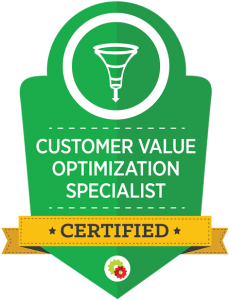How Effective Change Management Drives Business Success
The Role of Change Management in Business Consultancy
Change is inevitable for any organisation striving to grow, adapt, or stay competitive in an evolving marketplace. From introducing new processes to adopting the latest technology or restructuring departments, managing these transitions effectively can make the difference between progress and disruption.
At its core, change management is about bridging the gap between intention and implementation. It’s not just about deploying strategies; it’s about helping the people within your organisation adapt to and embrace those strategies.
In this blog, we’ll explore why change management is crucial, how it can help overcome resistance to change, and how a structured approach can unlock new opportunities for businesses.
Why Change Management is Essential for Organisational Growth
Adapting to change is rarely easy. As humans, we are naturally averse to change—it creates uncertainty, disrupts routines, and can often lead to resistance at all levels of an organisation. Without a structured approach to managing these transitions, businesses risk alienating employees, creating inefficiencies, and derailing their objectives.
Change management provides a roadmap to navigate these challenges. It ensures that everyone in the organisation—from stakeholders to employees—understands the purpose and benefits of the change, fostering a sense of collaboration and shared vision. By focusing on clear communication, proper planning, and ongoing support, change management lays the foundation for both short-term success and long-term sustainability.
Key Components of Successful Change Management
Effective change management is not a one-size-fits-all process. It requires a thoughtful approach tailored to your organisation’s unique needs, challenges, and goals. Below are the key components that underpin successful transitions:
- Clear Communication: Possible the number one most critical element in creating change, communication is the backbone of any such initiative. Employees need to understand the "why" behind the change, its potential benefits, and the steps involved. Lip service won't cut it. Your team will see through it and may result in lack of trust. Clear, honest, and consistent communication fosters trust and reduces uncertainty. Employees working with you rather than against you will make for an easier transition. Good employees can be lost where change is poorly considered.
- Strategic Planning: Even well managed change rarely happens without obstacles. A well-developed strategy anticipates challenges and risks, creating a roadmap to address them proactively. Planning also ensures alignment between organisational goals and the steps being taken to achieve them.
- Team Empowerment Through Training: Equipping your team with the tools, skills, and confidence to adapt is critical. Effective training not only reduces resistance but also empowers employees to embrace the change, fostering a sense of ownership and involvement.
- Monitoring and Feedback: Change is an ongoing process, and monitoring progress is essential. Gathering feedback from employees helps identify pain points and allows for real-time adjustments, ensuring the transition remains on track.
The Role of Business Consultancy in Overcoming Resistance to Change
Resistance to change is one of the most significant hurdles businesses face during transitions. This resistance often stems from fear of the unknown, concerns about job security, or simply a preference for familiar routines. Business consultants specialising in change management understand these dynamics and are equipped with strategies to address them.
Through open communication and hands-on support, consultants foster an environment where employees feel heard, valued, and included in the change process. Collaborative training sessions and workshops encourage engagement and help individuals see the benefits of the change—not just for the organisation but for their roles as well.
Moreover, consultants bring an external perspective, helping businesses identify inefficiencies and bottlenecks that may not be apparent from within. By addressing these issues, they enable smoother transitions and better outcomes.
Real-World Benefits of Effective Change Management
The impact of effective change management extends far beyond the transition itself. Businesses that invest in structured approaches to change often experience:
- Improved Efficiency: Streamlined workflows and reduced bottlenecks lead to smoother operations and better use of resources.
- Higher Employee Engagement: When employees feel included and empowered, they are more likely to embrace new processes and contribute to success.
- Faster Adoption of New Technologies or Processes: Structured training and support ensure quick and effective integration of new systems.
- Long-Term Adaptability: Change management builds resilience, making organisations better equipped to handle future changes.
For example, consider a company implementing a new customer relationship management (CRM) system. Without proper planning, employees may resist using the software, viewing it as an unnecessary disruption. However, with effective change management—including tailored training sessions and clear communication—employees quickly adapt, and the organisation benefits from improved customer insights and streamlined processes.
Partner with Us for Your Change Management Needs
Navigating change can feel overwhelming, but you don’t have to face it alone. Our business consultancy specialises in guiding organisations through complex transitions with a focus on people, processes, and measurable results.
We take the time to understand your unique challenges and goals, ensuring our strategies align with your vision. From clear communication plans to hands-on training and support, we are with you every step of the way.
Your Free Consultation
Your journey towards effective change management starts here.
Let’s talk. When we understand your challenges we can let you know if we’re the right fit to help. Following our discussion, we’ll document the details and, where possible, provide a proposal. Your first consultation and accompanying report are completely free, with no obligation—just an open discussion to explore possibilities.
By investing in change management, you’re not just managing transitions—you’re setting your business up for long-term success. Contact us today to start the conversation.
Contact Us












